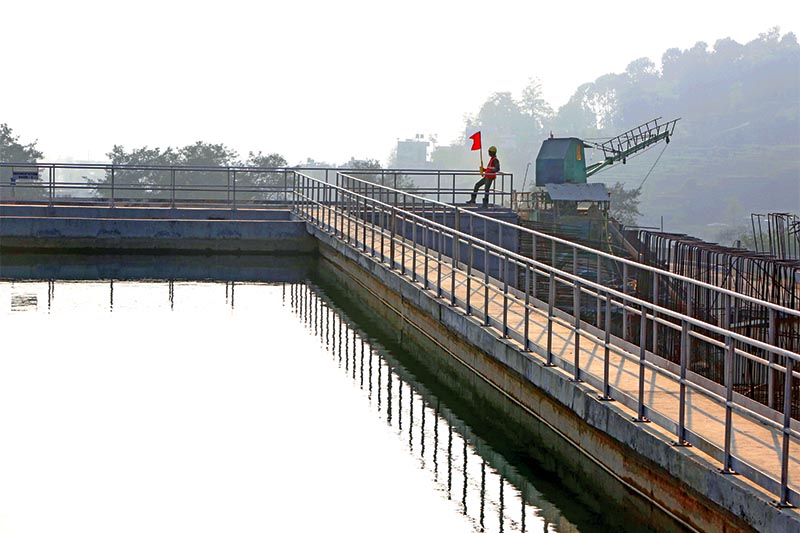Patan High Court directs govt not to freeze CMC security deposits
Kathmandu, December 21
In a major twist to the case related to the abandonment of the Melamchi Water Supply Project by the Italian contractor, Cooperativa Muratori e Cementisti (CMC), the Patan High Court today issued a temporary interim order directing the government not to freeze the security deposit of CMC parked in several banks.
A single bench of Chief Judge Prakash Kumar Dhungana of the Patan High Court issued the order to this effect on a petition filed by CMC representatives against the government’s decision to freeze the security money that CMC had deposited in banks, said Baburam Dahal, court registrar. “A full bench hearing the issue is scheduled for Sunday where both the government and CMC representatives have been summoned. The hearing will decide whether or not to issue an interim order to the government,” he said.
After CMC, which has already declared its bankruptcy to the Italian government, abandoned the Melamchi Drinking Water Project earlier this week, the government froze the Italian contractor’s security worth Rs 2.56 billion deposited at Standard Chartered Bank Nepal and Nepal Investment Bank.
Citing the security deposit of CMC, Minister of Water Supply Bina Magar clarified to the Finance Committee of the Parliament today that even if the government failed to bring CMC back for the project, the government would not face any loss, as the project security deposit of CMC could be used to pay off dues of sub-contractors and labourers hired by the firm and continue with the project construction.
Patan High Court has also sought clarification from the government for freezing CMC’s security deposit. In case the court issues an interim order asking the government not to freeze CMC’s security deposit on Sunday, it will hamper the payment to numerous contractors hired by CMC for the drinking water project.
Meanwhile, Gajendra Kumar Thakur, secretary at the Ministry of Water Supply, informed that the ministry is yet to receive any formal notice from the court in this regard. “Our decisions are backed by existing laws. We’ll give necessary clarification to the court when required,” he said.
READ ALSO:






